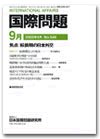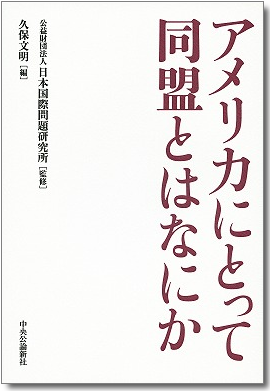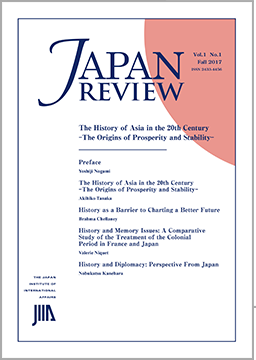Column/Report
|Top page|Print/Mobile page|Tweet
JIIA Strategic Comments(No.10):
Rising Tensions in the Persian Gulf and Japan’s Expected Role
Mari Nukii (Research Fellow)
Tensions between Iran and the US have escalated rapidly since the Trump administration deployed the USS Abraham Lincoln carrier strike group and a bomber task force to the Persian Gulf in early May 2019. Against that backdrop, Iranian Foreign Minister Mohammed Javad Zarif made a sudden visit to Japan on May 16, meeting with Japanese Foreign Minister Taro Kono and Prime Minister Shinzo Abe to ask for Japan’s understanding and support of Iran’s continued adherence to the nuclear agreement. Japan has good relations with all of the countries at odds with each other in the Middle East, it accommodated a state visit to Japan by President Donald Trump that began on May 25, and in June it will be serving as host for the G20 Summit, putting in a very favorable position to mediate efforts to avoid war in the Persian Gulf.
1. US provocations toward Iran
One year ago, the Trump administration announced that it planned to withdraw from the Joint Comprehensive Plan of Action (JCPOA), known commonly as the Iran nuclear deal, and continue to apply maximum pressure on Iran until that country acquiesced to twelve American demands. These dozen demands were deemed almost unacceptable by Iran, including completely suspending uranium enrichment, freezing plutonium reprocessing, shutting down the heavy water reactor, terminating ballistic missile development, accepting unrestricted inspections of nuclear-related and even military facilities by the International Atomic Energy Agency (IAEA), ceasing support for “terrorist organizations” in the Middle East and threats against neighboring countries, and withdrawing military advisors and Shia militias from Syria.
Despite the pressure from the US, Iran has thus far not agreed to talks and has adopted a policy of “strategic patience” by which it will abide by the nuclear agreement and garner favorable international public opinion while waiting for the Trump administration to eventually leave office. The American government’s two-stage resumption of economic sanctions on August 7 and November 5, 2018 dealt a heavy blow to the Iranian economy. Iran’s currency, the rial, has fallen to less than one-third its previous value, the inflation rate has risen to about 40%, and the prices of daily necessities have surged, making the lives of the general populace much harder. The Iranian government has even begun considering rationing gasoline, food products and other goods as it did during the 1980-1988 Iran-Iraq War.
Having grown impatient with an Iran that still refuses to surrender, hardliners within the US administration have ramped up the pressure since April with a series of hardline policies.
On April 8, the Trump administration designated the Islamic Revolutionary Guard Corps (IRGC), an elite branch of the Iranian military, a terrorist organization in the first case ever of the US assigning such a designation to the regular military forces of another country. The Supreme National Security Council of Iran retaliated by designating the US Central Command (USCENTCOM) a terrorist organization. Incidentally, Japan did not follow in the US’ footsteps, with Foreign Minister Kono on April 9 instead making it known that Japan would be emphasizing dialogue with Iran and endeavoring to take a dispassionate approach. The US Department of Defense and the CIA reportedly opposed naming the IRGC a terrorist organization for fear of attacks against US forces deployed throughout the Middle East, but this policy course was nevertheless pushed through by Secretary of State Michael Pompeo and National Security Advisor John Bolton. The intensification of disputes in the Middle East about which many experts had expressed concern is moving ever closer to becoming a reality.
In an effort to reduce Iran’s petroleum revenues to zero, the US on April 22 ended the waivers that had let eight countries, Japan among them, buy Iranian crude oil since last November without facing US sanctions, and imposed an across-the-board embargo. As of May 2, companies and individuals engaging in crude oil deals with Iran are subject to US sanctions. This has had a significant impact on Iran, which depends on petroleum revenues to cover 60% of its state expenditures. Serious disappointment swept across those countries that had been in talks aimed at continuing imports of Iranian crude oil, namely Japan, Turkey, China, India and South Korea. On the other hand, the US’ hardline policy against Iran has received support from Saudi Arabia and the United Arab Emirates (UAE), which have increased their crude oil production to dampen the sanctions’ effects on crude oil market prices.
The US has also been ramping up military pressure on Iran. Claiming intelligence received from Israel showed that Iranian-backed armed militants were plotting attacks against US forces stationed in Iraq, a security team centered on National Security Advisor Bolton held an emergency meeting and, as noted earlier, decided on May 5 to dispatch the USS Abraham Lincoln carrier strike force and a bomber task force to the Persian Gulf as well as to deploy Patriot missiles. In September 2018, when Iraqi paramilitary units closely aligned with the IRGC launched a mortar attack near the US Embassy in Baghdad, Bolton instructed the Pentagon to formulate plans for a military operation against Iran, but this approach was met with opposition from US Defense Secretary James Mattis and others and ultimately rejected1. Now, however, there is no one left within the Trump administration ready and willing to block the anti-Iranian hardliners.
2. “Suspicious” intelligence reminiscent of the prelude to the Iraq War, and Team B’s covert activities
The alleged collusion between Iran and al-Qaeda on which the US government has based its military buildup in the Persian Gulf as well as the Israeli assertion that attacks by Iran and militias under its control against American forces and facilities in the Middle East are imminent have been met with serious skepticism by experts both inside and outside the US as well as by many members of Congress. On May 14, Major General Christopher Ghika, the British deputy commander of the US-led coalition conducting counter-terrorist operations against ISIS in Iraq and Syria, declared that there had been no increased threat from Iranian-backed forces in the Middle East, espousing a view directly at odds with the US’ claims. In a column entitled “Don’t Let Israel and Saudi Arabia Drag the U.S. into Another War,” Bruce Riedel of the Brookings Institution warned against repeating the failures of the Iraq War2.Greatest concern among skeptics is the danger of a major conflict being triggered by accident as the US pursues its military buildup in the Persian Gulf region3.
The Iranian government has emphatically denied these accusations of provocative actions on the part of Iran. Foreign Minister Zarif insists that Iran and the US are being dragged into an explosive situation through the machinations of “Team B” comprising (NSA Advisor) Bolton, (Israeli Prime Minister) Benjamin Netanyahu, (Saudi Crown Prince Mohammed) bin Salman, and (UAE Crown Prince Mohammed) bin Zayed4.
Incidents that are too convenient to be mere coincidence continue to occur. On May 12, four ships, including two tankers from Saudi Arabia, were attacked off the coast of the UAE. American government officials immediately denounced the attacks as the work of Iran and, according to reporting by Reuters on the 17th, an assessment made by a Norwegian insurance company strongly suspected IRGC involvement in the attack. Two days later, on May 14, the Houthis in Yemen attacked two Saudi Arabian pipeline pump stations by drone, prompting both Saudi Arabian Minister of Energy, Industry and Mineral Resources Khalid al-Falih and Minister of State for Foreign Affairs Adel al-Jubeir to blame Iran and assert that the attack had been carried out on Iran’s orders.
An editorial in the Arab News, state-aligned Saudi newspaper, even suggested "surgical" U.S. strikes as retaliation against alleged threats from Iran5.The US has set a precedent, and it had a telling effect: the Trump strikes on Syria when the Assad regime used Sarin gas against its people”. Unlike Syria, which is still in the midst of a chaotic civil war, Iran has not permitted an invasion by another country since the Iran-Iraq War concluded in 1988, and it is hardly likely to take these “surgical strikes” lying down. Such strikes would be met by nationwide resistance to the invaders and attacks on US and US-friendly forces and facilities by Iranian-backed militias across the Middle East, paving the way for battle lines to extend across the entire Middle East.
3. President Trump and Iran’s political leaders earnestly seeking mediation
Iranian President Hassan Rouhani on May 8 responded to US pressure by announcing that Iran would be partially suspending its compliance with the JCPOA by ignoring the agreement’s stipulated ceilings on the possession of low-enriched uranium (a maximum of 300kg) and heavy water (a maximum of 130 tons). He added that, if the other JCPOA signatories failed to fulfill their obligations with respect to financial transactions and crude oil trading by launching the Instrument in Support of Trade Exchanges (INSTEX) within 60 days, Iran would began phasing out its adherence to JCPOA obligations, e.g., ignoring the stipulated limit of 3.67% on uranium enrichment and disregarding the required redesign of the Arak Heavy Water Reactor Facility. The nuclear deal permits exports to enable Iran to keep its stockpiles of enriched uranium and heavy water within the stipulated limits, but US sanctions essentially prevent such exports6. Iran’s response can thus be seen as a restrained one.
Following Iran’s announcement that it would be partially suspending observance of the nuclear deal, the US on May 8 leveled new sanctions targeting iron, aluminum, and copper trading, further escalating its economic measures against Iran. This action exacted a heavy toll, coming as it did just shortly after Supreme Leader Ali Khamenei had called on the Iranian people to counter the crude oil embargo by promoting exports of non-petroleum goods and by joining together in solidarity to withstand the Trump administration’s pressure.
When it was reported on May 13 that the Pentagon on orders from Bolton had put together a plan to dispatch an additional 120,000 US troops, President Trump publicly ruled out war, stating that he had no intention of going to war with Iran and that all he wanted to do is negotiate with Iran’s political leaders. Indeed, a direct telephone number to the White House was reportedly passed on to the president of Switzerland, which represents America’s interests in Iran. Trump’s statement sparked speculation among the media that a possible rupture had formed between Bolton together with Pompeo, the most rigid hardliners against Iran, and Trump, and that the president was dissatisfied with both of them. During a press conference at the start of the May 27 Japan-US summit meeting, Trump expressed his hopes for Japanese mediation between the US and Iran, indicating that he could be sincerely seeking out opportunities to engage with Iran.
Meanwhile in Iran, Supreme Leader Khamenei insisted that his country had no intention of going to war with the US but would respond if attacked. To avoid an accidental clash in the Persian Gulf, Foreign Minister Zarif and the rest of the Iranian government appear to be desperately seeking out a channel of dialogue with the US through several routes, one of those being Japan.
Since the 1979 Iranian Revolution, Iran has survived an invasion by Iraq, the threats of the George W. Bush administration’s post-9/11 “regime change” policy, and military intimidation and sanctions by the US and its Arab allies in Iran’s neighborhood, so it is extremely unlikely simply to give in to the US. That said, Iran has begun adopting a posture amenable to discussions with President Trump in a suitable setting that does not cause any loss of face as a means of avoiding war.
Supreme Leader Khamenei is very unlikely to meet with President Trump, given his sparse record of foreign travel, his explicit distrust of the US, his own personal beliefs, and the reputational damage he could suffer if such discussions were to end in failure. Any possibility of a meeting thus lies with President Rouhani. A simple telephone conversation with President Barack Obama in 2013 triggered harsh attacks against Rouhani from conservatives within Iran but, with only two years left in his term of office, Rouhani may very well think that meeting President Trump to at least avert a war would be worth a try, even if it would cost his political standing dearly. For his part, Trump could gratify his own ego and those of his supporters by avoiding war and becoming the first American president since the Iranian Revolution to meet directly with his Iranian counterpart.
Japan presently enjoys good relations with both countries and could offer the most suitable setting. During the May 27 Japan-US summit meeting, Prime Minister Abe proposed mediating between the US and Iran to ease the mounting tensions between the two, and he reportedly plans in mid-June to become the first Japanese prime minister in 40 years to visit Iran. One possible approach would be to invite President Rouhani as a special guest to the June 28-29 G20 Summit and arrange a meeting between the Iranian and US leaders in parallel with the G20 proceedings. If circumstances appear favorable, Japan could then arrange discussions between G20 member Saudi Arabia and Iran and, if a proposal can be formulated at the G20 plenary session to ease tensions in the Persian Gulf and the Middle East, Japan will indeed contribute to international peace through diplomatic means and play a role worthy of a G20 host country. By acting as an intermediary and demonstrating to the rest of the world its firm commitment to supporting the Iran nuclear deal and respecting the Non-Proliferation Treaty (NPT) regime, Japan will be sending a clear message of opposition to North Korea’s development of nuclear weapons and ballistic missiles, and helping build momentum toward next year’s NPT Review Conference.
Given that Japan imports 90% of its petroleum from the Middle East, this is a life-and-death issue essential to the peace and security of the Persian Gulf as well as the stability of the Japanese economy.
(Draft completed on May 27, 2019)
1 ”US ramps up military pressure, deploys carrier to Middle East, carries out Arctic exercises”, May 7, 2019), Nikkei Shimbun <https://www.nikkei.com/article/DGXMZO44479040X00C19A5FF8000/>, accessed on May 8, 2019.
2 Bruce Riedel, “Don’t Let Israel and Saudi Arabia Drag the U.S. into Another War,” Order from Chaos, May 15, 2018, Brookings Institute, <https://www.brookings.edu/blog/order-from-chaos/2018/05/15/dont-let-israel-and-saudi-arabia-drag-the-u-s-into-another-war/>, accessed on May 17, 2019.
3 “US rushing headlong into war with Iran”, May 9, 2019, Newsweek
<https://news.goo.ne.jp/article/newsweek/world/newsweek-E239387.html>, accessed on May 10, 2019.
4 “Zarif: Team B not on the same page as Trump”, May 18, 2019, BBC Persia
<http://www.bbc.com/persian/iran-48318658>, accessed on May 19, 2019.
5 Adam Taylor, “Who Actually Supports Military Strikes against Iran?,” The Washington Post, May 17, 2019, <https://www.washingtonpost.com/world/2019/05/17/who-actually-supports-military-strikes-against-iran/?utm_term=.42cf9bed9693>, accessed on May 19, 2019.
6 “US targets metals and other goods for additional Iran sanctions; Iran partially suspends implementation of nuclear deal”, May 9, 2019, Reuters
<https://jp.reuters.com/article/trump-iran-sanction-idJPKCN1SE2LA>, accessed on May 10, 2019.
(2019-05-27)
Topics
Membership
 Archive of high-quality scholary works translated from Japanese to English
Archive of high-quality scholary works translated from Japanese to English
A highlight of JIIA's recent activities and a summary of its organization.
Publication
Journal

Kokusai Mondai (International Affairs)
No.680 April 2019 "Protecting Human Rights via International Procedures"
Vol.2 No.4 Spring 2019
"Japan and the Post-World War II Liberal International Order"
Books
 What Do Alliances Mean to the US?
What Do Alliances Mean to the US?
(Fumiaki Kubo ed., 2013)






